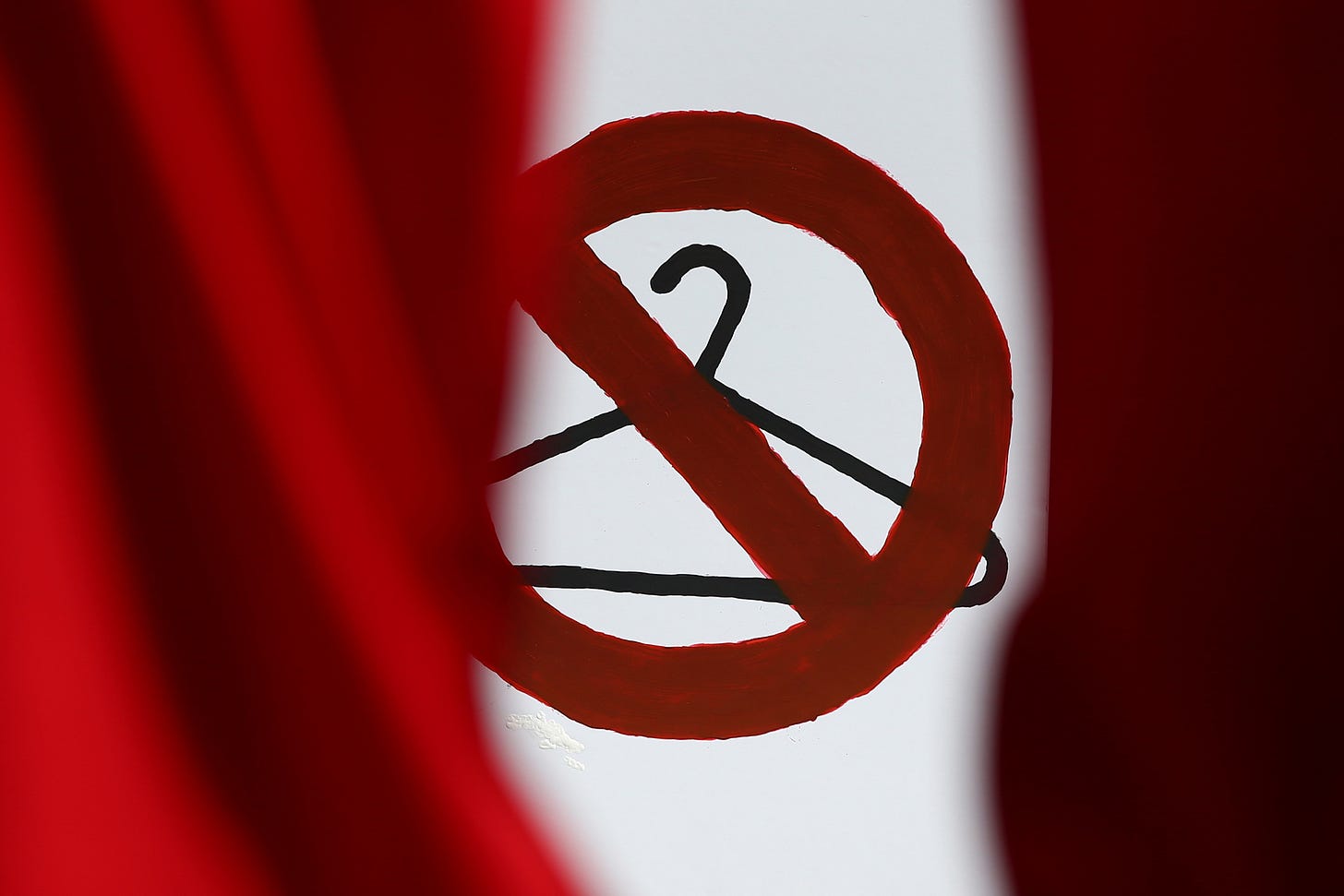It’s Abortion, Stupid
We are underappreciating the significance of the Dobbs decision.
AM I THE ONLY PERSON WHO DETECTS, among many of my fellow commentators commentating away on this election, a kind of reluctance, almost a kind of embarrassment, to state the obvious: Abortion rights is the issue that could decide this presidential contest.
This is particularly clear from Ann Selzer’s Iowa poll, with the shocking result of Kamala Harris up 47-44 over Donald Trump in Iowa, a state with a six-week abortion ban.
But it has been evident all along, of course. If there had been no Dobbs decision, if the question of reproductive rights had not been thrust front and center into our politics in 2024, would Kamala Harris be running a bit ahead of Donald Trump? Wouldn’t she be trailing thanks to general disapproval of the Biden-Harris administration, due to retrospective approval of Trump’s performance on the economy, due to concerns about immigration and the border?
I don’t think January 6th would be enough to sink Trump by itself. I do think Trump would be winning if reproductive rights weren’t at stake. Trump has given the indication that he believes this, too: from his deliberate efforts to muddy his position on the topic to his proclamation that women won’t be “thinking about abortion” if he’s elected, as he portrays himself as their “protector.”
The issue of abortion rights is critical to analyzing and understanding this election. But it makes mainstream commentators uneasy. Not because they’re not for abortion rights—I imagine most of them are. But because it somehow doesn’t seem as momentous or as suitable in deciding a crucial election, compared to issues like the economy, or democracy, or even immigration. It’s also a little personal and, rightfully, emotional. And so I think my (mostly male) counterparts are a bit shy about discussing the issue.
But you know what? Dobbs really was one of the most consequential Supreme Court decisions of modern times. Real lives have been affected and are being affected by it. As Selzer noted, in Iowa, it was the state ban that got people interested in voting. As Steve Kornacki observed, the saturation coverage around the abortion ban has been evident in Iowa polling—with massive opposition correlating into major Harris gains.
That’s just Iowa. But the ripple effects of Dobbs can be seen far beyond there, as well. The issue of abortion remains in question in several major states, and perhaps nationally. The next president will make judicial appointments, could sign legislation, and will have the power to take executive actions that will actually affect abortion access and other related issues.
Reproductive freedom is a real issue that separates the two presidential candidates and their two parties from one another. Voters are entitled to vote on it. Many are.
I’m sure that within the Harris campaign, and allied Super PACs, there’s a fair amount of internal mansplaining going on about how they have to end on a positive, upbeat, message of unity and the future. Perhaps they’re wondering: What kind of a closing message is something so divisive, so discomforting, as abortion rights?
In fact, it’s a powerful closing message. Let the mansplaining political commentators wring their hands. Reproductive freedom is a crucial issue, and a winning one, and the Harris campaign would be foolish not to make it a closing one in these last couple of days.



